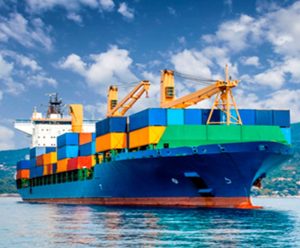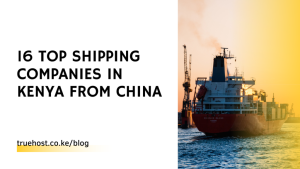
International Freight Service
International freight service involves multiple modes of transportation. Depending on the size of your load, you may need to use ocean, air, or intermodal services.
Freight forwarding companies handle many aspects of your international logistics for you, including order fulfillment, consolidating items, customs brokerage, and handling documentation following shipping regulations. They can also arrange for storage as needed and ensure your freight arrives at its destination on time.
Ocean Freight
Ocean freight is the most economical way to ship goods internationally. It’s also the most environmentally friendly method of shipping, as ships run on fuel that produces less carbon dioxide than airplanes. In addition, the containers used to transport ocean freight are built to be sealed and locked during transit for added security.
Ocean freight services are best for businesses with large, bulky products or those that can’t abide by strict air freight shipping timelines. These shipments typically travel by container ship from a port to another port around the world. The process usually takes 20-60 days, and the cost of ocean freight is typically lower than air freight rates.
Depending on the volume of the shipment, ocean freight may be subject to capacity limitations, which can cause rates to rise. In addition, delays and weather conditions can sometimes affect the efficiency of ocean freight shipments.
Companies looking to take advantage of the benefits of ocean freight shipping should consider partnering with an international logistics company that can provide reliable, affordable service. They’ll need to understand the full scope of the shipping process, including customs clearance and tariff duty, which can be arranged with the help of an experienced freight forwarder. In addition, international freight service businesses that coordinate domestic freight transportation should remember that they’ll need to secure a BMC-84 freight broker bond. This type of bond performs a similar function to an NVOCC bond, but is specific to the domestic market.
Air Freight
Air freight is a valuable tool for businesses that need to coordinate time sensitive shipments. The fastest way to ship goods internationally, it offers a global coverage network and allows for the transport of products that cannot be shipped via ocean or road due to landscape obstructions.
Air shipping enables companies to connect with new markets and expand their consumer base by allowing them to sell across the globe in a short amount of time. It also helps companies minimize inventories and support just-in-time production. Lastly, it is one of the safest transportation modes with a low percentage of product damage or losses during shipment.
Because it relies on commercial aircraft instead of cargo ships, air freight is usually less expensive than ocean or rail shipping. However, it is not without its drawbacks. For example, the load capacity of airplanes is limited, which means larger shipments are often shipped by air-to-ground service to save costs. In addition, weather conditions can delay flights, which adds days to the overall delivery time.
To avoid these challenges, it is important to work with a freight broker that can provide reliable international air freight services. A good freight broker will confirm space on the next available flight and authenticate your air waybill number, airline, destination airport, weight and size restrictions, and any other required information. They will also offer a variety of air freight options, including same-day and next-day air service, for speedy delivery to your customer.
Intermodal
Intermodal freight is a logistics strategy that relies on multiple modes of transport to get your product from one point to another. It uses a combination of trucking, train, and ocean shipping to move your freight from one place to the next. Intermodal freight can be a more cost-effective option than air or sea shipping, especially for long hauls.
Using intermodal freight allows you to ship in steel containers that can be transferred between trucks, trains, and ships without having to be unloaded and repacked. This saves you money and time because your products don’t have to sit in a warehouse waiting for transportation. Intermodal freight shipments typically travel in 20- or 40-foot international containers, while domestic intermodal shipments are transported in 53-foot containers.
Once your freight is in a container, it is loaded onto the first mode of transport—usually a truck. That truck then moves the container to an intermodal terminal, which may be a cross dock facility, transload center, or distribution center. From there, your freight is transferred to a train that will take it inland to its final destination.
Because intermodal shipping involves multiple modes of transport, it can be more complicated than truckload service. This method also requires a greater degree of coordination between logistics companies. Moreover, intermodal transportation has the potential for delays due to weather and equipment failures.
Third-Party Logistics
As a company grows, it may find itself needing to expand its market beyond local borders. This requires shipping its products across the ocean, air, international freight service or land in a way that complies with a complex set of government regulations. Companies often opt to work with third-party logistics (3PL) firms to meet their international shipping needs. This option can offer a number of advantages, but also comes with a few disadvantages to consider.
A 3PL is a business that specializes in providing distribution, warehouse, and transportation services for its customers. These businesses contract with other firms to provide these services so they can focus on their core business. This approach can save money and time, and allows companies to have more flexibility when it comes to delivering their goods or services.
In addition, 3PL companies have established logistical infrastructures and software support that they can leverage for their clients. This can enable them to improve shipping efficiency for their clients, reducing costs and increasing their profit margin. It is important to be wary, however, of the quality and reliability of a logistics partner. It is important to ensure that they are trustworthy and have a good track record for meeting customer expectations. They should be able to clearly communicate their intentions and deliver results on schedule and within budget.



